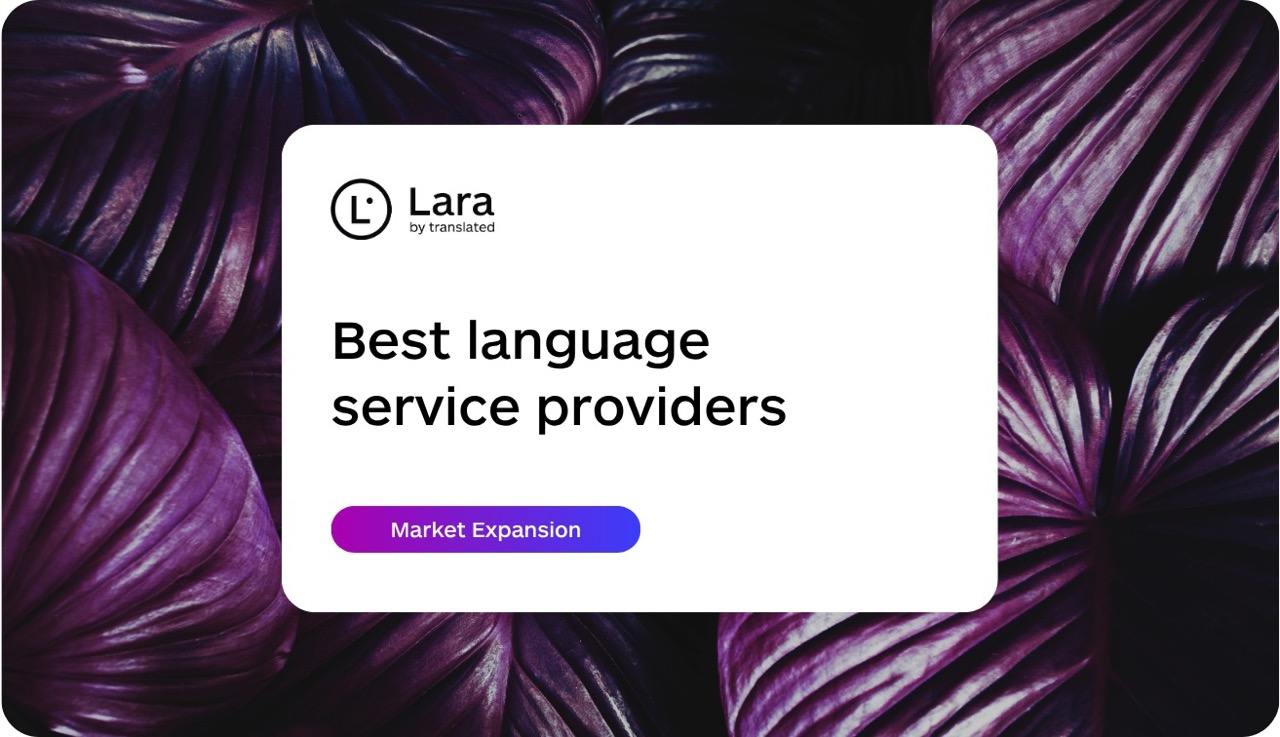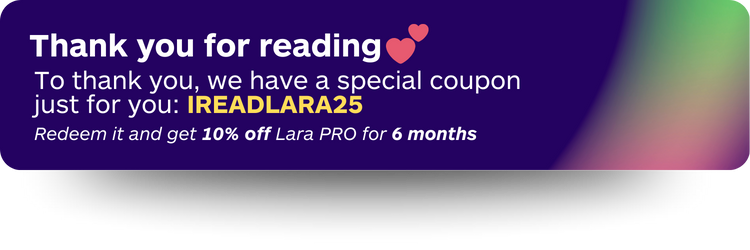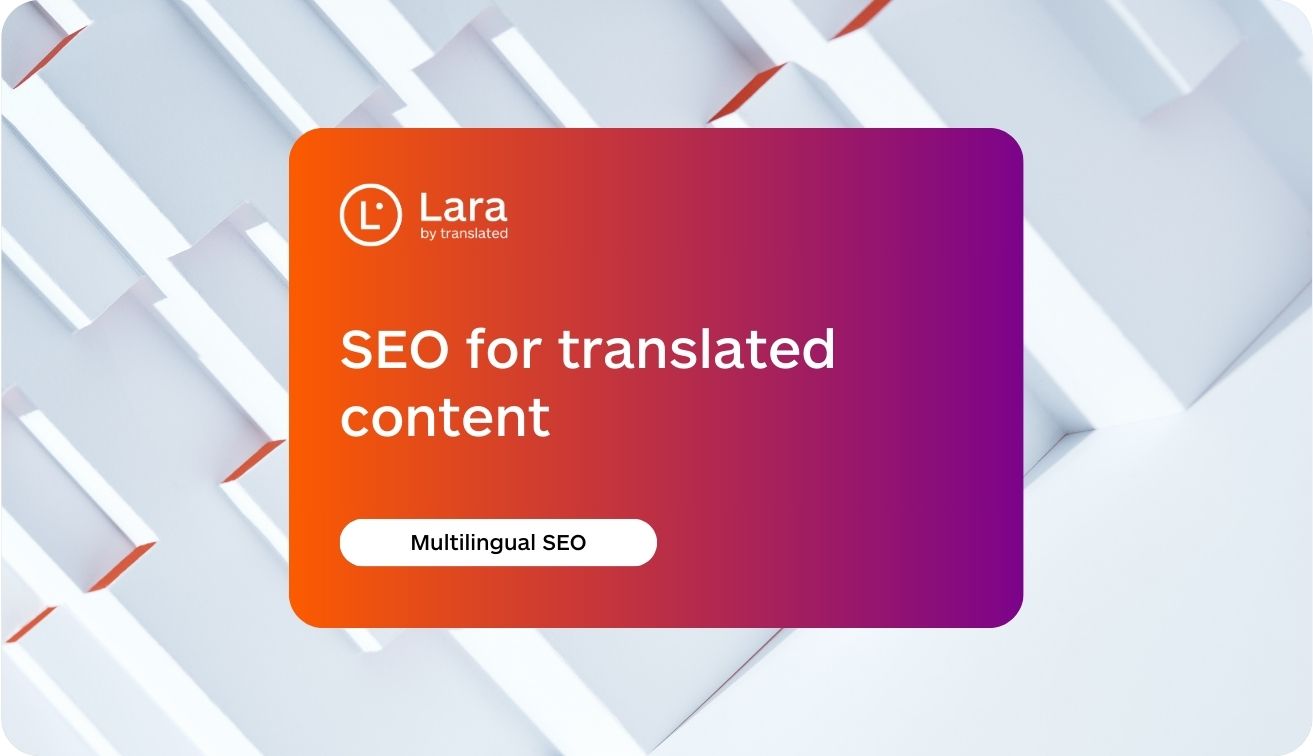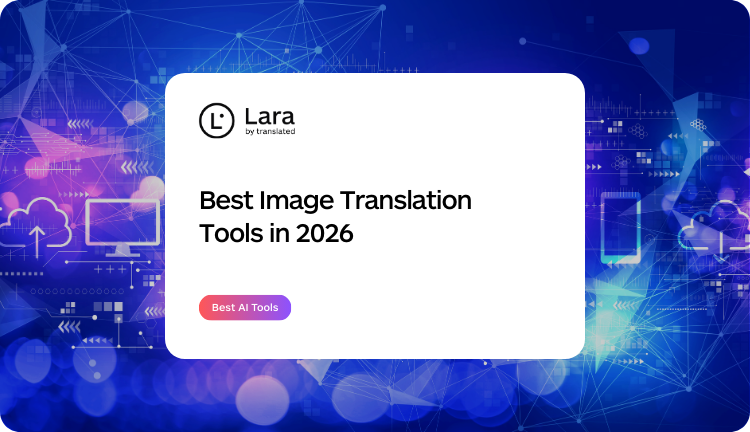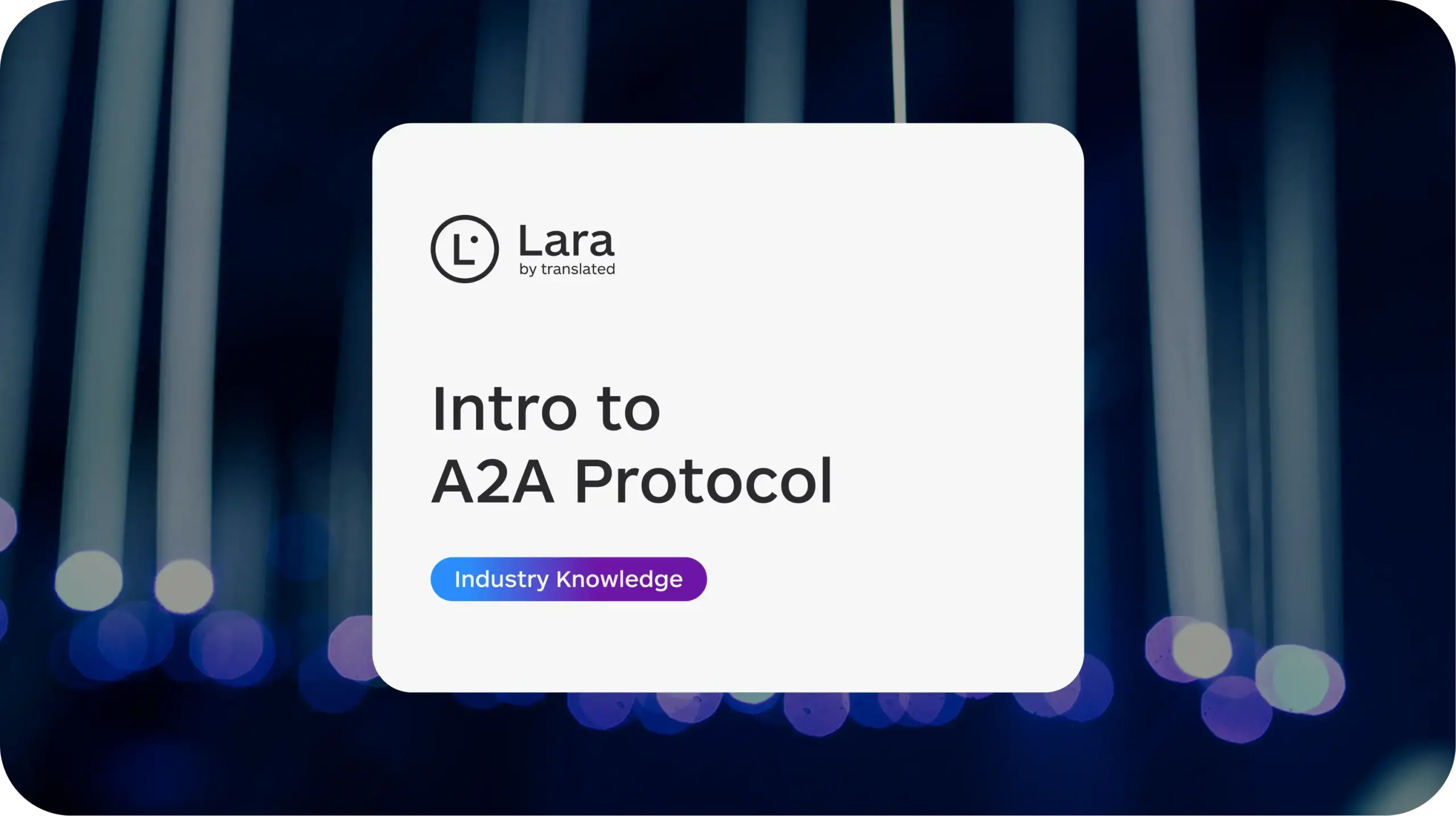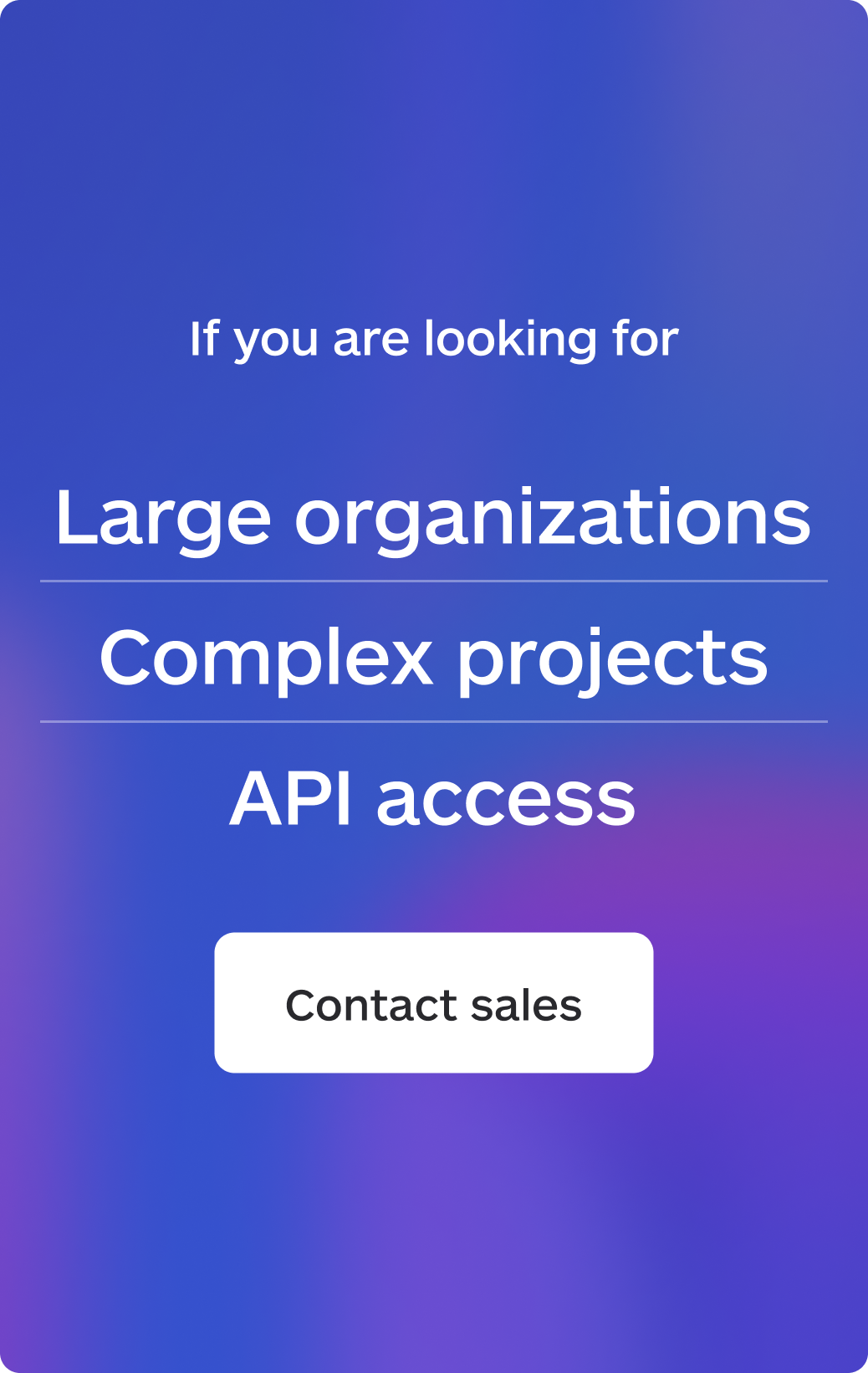The language service provider landscape has evolved dramatically in 2025, with companies seeking more than just basic translation services. Today’s businesses need strategic partners who can navigate complex global markets while delivering exceptional quality at scale. Whether you’re planning international expansion or looking to optimize your current localization strategy, choosing the best language service provider (LSP) can make or break your global success.
The modern language service provider has transformed from a simple translation vendor into a comprehensive globalization partner. These companies now offer end-to-end solutions that encompass everything from translation quality assurance to cultural consulting, making them indispensable for companies serious about international growth. But which are the best language service providers?
What makes a top-tier language service provider in 2025
The best language service providers share several key characteristics that set them apart in today’s competitive marketplace. First and foremost is their ability to seamlessly integrate advanced technology with human expertise. While AI and machine translation have become sophisticated tools, the most successful LSPs understand that human oversight remains essential for maintaining quality and cultural accuracy.
Leading providers have also embraced multimodal localization, expanding beyond traditional text translation to handle video, audio, and interactive media. This comprehensive approach ensures that your brand message resonates across all touchpoints, regardless of format or platform.

Data security has become non-negotiable in 2025, particularly for companies in regulated industries. Top-tier LSPs implement stringent privacy measures and often offer on-device processing options to maintain confidentiality while delivering exceptional results.
Enterprise-focused language service providers
For large organizations with complex global needs, several language service providers stand out as industry leaders.

Lionbridge continues to excel in technology-driven solutions, leveraging AI and machine learning within their translation management systems while maintaining rigorous quality standards through human oversight.
TransPerfect remains a dominant force, offering their GlobalLink TMS platform that integrates seamlessly with machine translation while providing comprehensive project management capabilities. Their strength lies in handling large-scale, multi-language projects across diverse industries.
RWS Group has positioned itself as a premium provider, particularly strong in regulated industries where precision and compliance are paramount. Their combination of linguistic expertise and industry-specific knowledge makes them ideal for companies in healthcare, legal, and financial services.
Smartling has carved out a niche as a technology-forward provider, offering AI-powered translation analytics and real-time collaboration tools that appeal to modern, agile businesses seeking both speed and quality.
Specialized providers for specific industries
The SaaS localization market has seen tremendous growth, with specialized providers emerging to serve specific industry needs.

Companies like Phrase (formerly Memsource) have built comprehensive platforms specifically designed for software localization, offering seamless integration with development workflows and continuous localization capabilities.
Crowdin — that is integrated with Lara — has become particularly popular among tech companies for its developer-friendly approach and extensive integration ecosystem. Their platform supports agile localization processes that align perfectly with modern software development cycles.
For multimedia content, providers like Keywords Studios specialize in gaming localization, while other specialized firms focus on video content adaptation and voice-over services across multiple languages and cultural contexts.
Regional specialists making global impact
The emergence of strong regional language service providers has created new opportunities for businesses seeking local expertise. African markets, in particular, have seen significant growth with the African Continental Free Trade Area creating unprecedented demand for cross-border communication services.
In the Asia-Pacific region, the Regional Comprehensive Economic Partnership has driven demand for specialized providers who understand the complex linguistic and cultural landscape of Southeast Asia. Local providers in these markets often offer superior cultural adaptation and regional compliance expertise.
Eastern European and Central Asian markets have also produced specialized providers who excel in navigating the regulatory complexities of the Eurasian Economic Union while delivering high-quality linguistic services.
The technology advantage: Lara Translate’s approach
While traditional language service providers offer comprehensive solutions, innovative technologies are reshaping the translation landscape. Lara Translate represents the next generation of translation technology, specifically designed as a specialized Translation Language Model (T-LM) that addresses the limitations of general-purpose language models for professional translation needs.
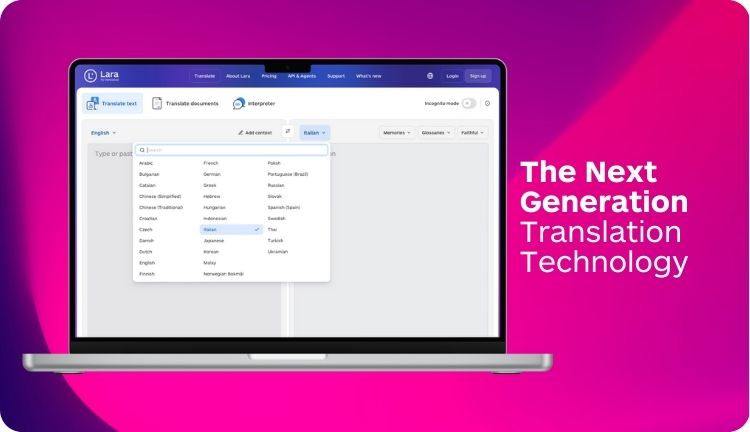
Unlike generic AI translation tools, Lara Translate is trained on professionally translated texts aligned across multiple languages, delivering superior accuracy and contextual understanding for business applications. The platform achieves remarkable speed improvements—up to 20 times faster than traditional LLM solutions—while maintaining the quality standards that professional translation quality assurance demands.
The technology’s strength lies in its optimization for non-English languages, addressing a common gap in general AI models that are often biased toward English content. This makes Lara particularly valuable for companies expanding into diverse global markets where linguistic precision is crucial for success.
Quality assurance in modern language services
Translation quality assurance has evolved beyond simple linguistic checks to encompass cultural appropriateness, technical accuracy, and brand consistency. The best language service providers implement multi-tiered QA processes that combine automated checks with human expertise.
Modern QA workflows typically include linguistic review, functional testing for software localization, cultural validation, and compliance verification for regulated industries. This comprehensive approach ensures that translated content not only reads correctly but also functions properly and resonates with target audiences.
Making the right choice for your business
Selecting the optimal language service provider requires careful consideration of your specific needs, industry requirements, and growth objectives. Enterprise clients often benefit from established providers with proven track records in handling complex, multi-language projects at scale.
Companies focused on SaaS localization should prioritize providers with strong technical integration capabilities and experience in agile development environments. For businesses entering emerging markets, regional specialists often provide superior cultural insights and local compliance expertise.
Budget considerations remain important, but the focus should be on value rather than pure cost savings. The best LSPs deliver ROI through improved market penetration, enhanced customer experience, and reduced time-to-market for global initiatives.
FAQs
What should I look for in a language service provider?
Focus on providers that offer a combination of advanced technology and human expertise, with proven experience in your industry and target markets. Essential capabilities include robust translation quality assurance processes, data security measures, and seamless integration with your existing workflows.
How do language service providers ensure quality?
Modern LSPs use multi-layered QA processes that combine automated quality checks with human review. This includes linguistic validation, cultural appropriateness verification, functional testing for software applications, and compliance checks for regulated content.
What’s the difference between translation and localization services?
Translation focuses on converting text from one language to another, while localization adapts content for specific regional markets, considering cultural nuances, local regulations, and market preferences. The best language service providers offer comprehensive localization that goes beyond simple translation.
How important is technology in modern language services?
Technology plays a crucial role in modern LSPs, enabling faster turnaround times, improved consistency, and cost efficiency. However, human expertise remains essential for quality assurance, cultural adaptation, and handling complex content that requires nuanced understanding.
This article is about
- Comprehensive overview of top language service providers for 2025 global expansion strategies
- Key characteristics that distinguish leading LSPs in today’s competitive marketplace
- Enterprise-focused providers and specialized solutions for SaaS localization requirements
- Regional specialists serving emerging markets in Africa, Asia-Pacific, and Eastern Europe
- Technology integration including Lara Translate’s innovative approach to professional translation
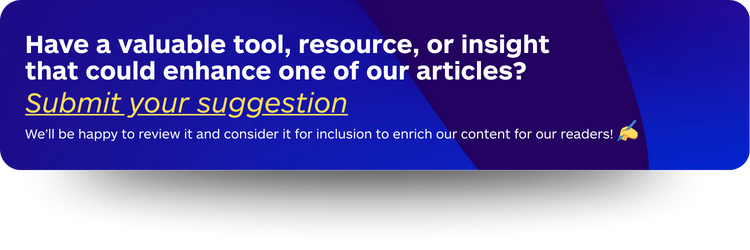 Have a valuable tool, resource, or insight that could enhance one of our articles? Submit your suggestion!
Have a valuable tool, resource, or insight that could enhance one of our articles? Submit your suggestion!
Useful links:
